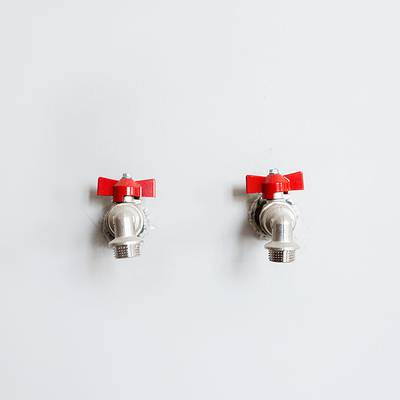
Can I drink tap water in Turkey?
When you travel to Turkey, a country known for its rich culture, beautiful sights, and exquisite cuisine, there's one crucial detail you need to know - can you drink tap water or should you stick to bottled water? Here's everything you need to know about drinking water in Turkey.
Tap Water in Major Cities and Tourist Areas
Turkey's tap water in major cities such as Istanbul, Ankara, and Izmir, and in most tourist areas is chlorinated and meets World Health Organization (WHO) water safety guidelines. However, even though the government ensures water safety through regular testing, Turkish natives and long-term expats often prefer to consume bottled water. The reason behind this is due to the varying levels of chlorine used to clean the water that may affect the taste and the presence of outdated infrastructure in some areas, which may influence the water's taste and quality.
Tap Water in Rural Areas
In rural areas of Turkey, the tap water is not generally considered safe to drink. Although local authorities do their best to regulate the water supply, they often face challenges due to a lack of advanced purification systems. This situation is particularly true in southeastern Anatolia and remote village areas. When visiting rural regions, it's recommended to drink commercially bottled water.
Bottled Water in Turkey
Bottled water is the preferred choice of the local citizens and is widely available throughout the country. Whether you're dining in a high-end restaurant in Istanbul or grabbing a quick snack in a village market, you'll find a variety of bottled water brands that you can purchase. Popular Turkish brands include Erikli, Pınar, and Hayat, amongst others. The price for a 500ml bottle typically ranges from 1 to 2 Turkish lira (around 10-20 cents in USD), making it an affordable alternative to tap water.
Local Customs Regarding Water
Drinking water is an integral part of Turkish culture and hospitality. In Turkey, it's customary to offer anyone, including guests, service providers, and even strangers, a glass of water, especially during the hot summer months. Refusing the offer could be seen as impolite. However, remember when visiting homes or smaller establishments, if you're offered tap water, it is acceptable to request bottled water instead.
Water and Turkish Cuisine
Aside from drinking, water plays a prominent role in Turkish cuisine. Many traditional recipes require plenty of water, not only for boiling but also for preparing soups, compotes, and deserts like the famous Turkish delight. Turkish chefs and home cooks usually use tap water for cooking, as the heat kills off any potential bacteria.
Hammams — Turkish Baths
In Turkey, water isn't just for drinking and cooking; it's also an integral part of the traditional Turkish bathing culture — the Hammam. These baths, filled with steam and often adorned with ornate mosaics, are an essential Turkish experience. While there aren't any specific guidelines about water consumption in hammams, it’s important to stay hydrated before and after your visit. This experience will be more enjoyable if you remember to drink plenty of water.
Water Safety Tips
When traveling throughout Turkey, remember that bottled water is your safest bet. Avoid drinking tap water in rural areas. In cities, although tap water is treated, you might prefer bottled water due to taste. When buying bottled water, ensure the seal is intact to avoid tampered bottles. For extra safety, consider using portable water purifiers or water purification tablets.
To conclude, while Turkey's tap water is technically safe to drink in many places according to government guidelines, both locals and visitors often prefer bottled water. Understanding local customs, knowing when to drink tap water or choose bottled water, and being aware of the role of water in Turkish culture and cuisine can significantly enhance your Turkish travel experience.





